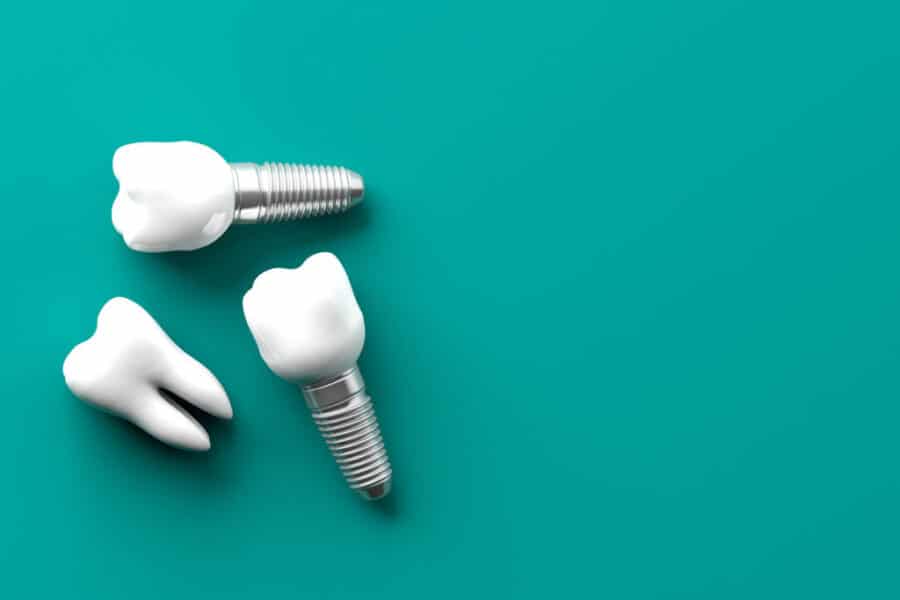Our team is able to provide a wide range of state-of-the-art options for dental implants and bridges.
Even though our first goal is to try to first save your natural teeth, from time-to-time you may run into circumstances that a tooth may need to be extracted and replaced with an implant or a bridge. With our dental technology and lab, your replacement implant or bridge can blend right in with your existing natural teeth.
What is a dental implant?
There are multiple components that make up a dental implant which include:
- The Fixture: This is the titanium post that is inserted into the jawbone and serves as the foundation for the implant. You can think of this as the roots of the tooth, just made from titanium. Once the fixture is in place, it can take several months to heal and fuse to the bone structure in the jaw.
- The Abutment: After the fixture is healed, the dentist will add the abutment to the implant fixture. This is the part that the crown or restoration attaches to.
- The Crown/Bridge/Denture: This is the visible tooth crafted to match your existing teeth and completely restore functionality and beauty to your smile. This is the final piece to your implant and it’s the visual piece that completes your beautiful smile!
Why should I replace my missing teeth with an implant?
When you lose teeth, whether due to decay, extraction or injury you can begin to experience complications that when aren’t addressed in a timely manner could begin to cause major problems. Even if the teeth are not visible when you smile and are in the back of your mouth, it’s vital to discuss your options with your dentist. Some of the major issues that could occur include:
- Shifting Teeth
- When you lose a tooth or multiple teeth, space or gap that now exists will begin to slowly move and fill in, causing your existing teeth to move and begin to possibly cause bite issues, jaw pain, and chewing and eating difficulties.
- Speech Difficulties
- When you are missing teeth, they may alter your speech and possibly create difficulties with pronunciation depending on where the tooth was.
- Bite Changes
- Just like before when we talked about your teeth shifting, you may experience changes in your bite, causing misalignment of your teeth and discomfort while eating.
- Bone loss in the jaw
- The roots of your teeth are supported by the underlying bone structure in your jaw. When you lose a tooth and the roots are no longer inhabiting the space in your jaw, you begin to lose bone mass in that location. When this condition is left for a long period of time, you may lose enough of your jawbone that you’ll require a specific procedure to rebuild the bone called a bone graft. Sometimes when left for too long, it can make the graft or implant procedure not possible. Making it very important to take care of as soon as possible.
- Jaw pain and headaches
- When the structure of your jaw and the neighboring teeth have shifted and moved, you can begin to experience frequent headaches, migraines, and jaw pain.
When do I need to get dental implants?
Every individual situation is different and depending on various factors, your treatment and specific plan will differ. Our dentist will go through all of your options and craft a unique plan that is tailored for your specific restoration and implants.
Some things that you will discuss with your dentist that can determine the scope of work include:
- The current state of oral health
- Costs and insurance coverages
- Duration of treatment
- Bone density in the jaw
- Positioning and effects in existing teeth
- Your comfort
- Continued treatment and upkeep
Are you interested in speaking with our team about dental implants? To discuss your options and get more information, call our office at 717.938.4646 or contact us.


